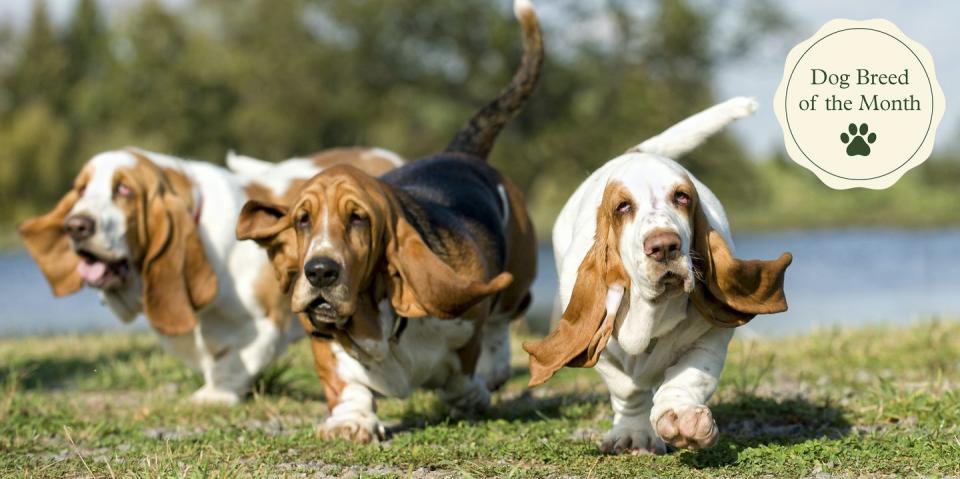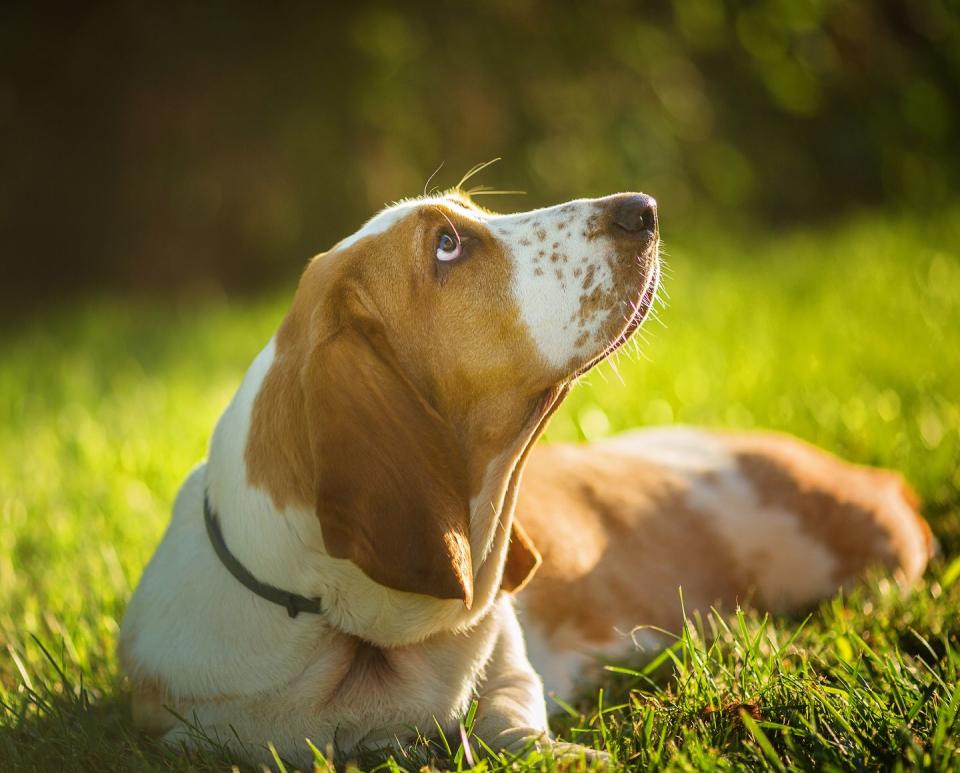5 important questions to ask before adopting a Basset Hound

Each month we will be shining a light on different dog breeds in our series, Dog Breed of the Month. Next up, we look at the friendly, energetic and happy Basset Hound.
"Basset Hounds are medium sized dogs with short coats and have a lifespan of over ten years," PDSA vet nurse, Shauna Spooner, tells Country Living. "Their name directly relates to their size – the word 'basset' comes from the French word bas which means low or short. They are gentle, placid dogs that enjoy the company of their owners, and are best suited to a family home."
Keep reading for everything you need to know about Basset Hounds, including typical behaviour, health issues and grooming tips:
What is the typical behaviour of a Basset Hound?
"Basset Hounds are known for being vocal – they love to 'sing', howl, and bark. They can be very independent, especially when it comes to training, so will require consistent positive reward-based training throughout their lives," Shauna from the PDSA tells us.
"They need a minimum of an hour's exercise each day, which can include walks, playtime, and training. Basset Hounds are scent dogs, so will also require scent games to give them a chance to exercise their natural instincts, and to keep their brains active."
Do Basset Hounds have any health issues?
Basset Hounds are prone to certain health problems, many of which are due to the fact they have been sadly bred for their appearance. According to the PDSA, the most common health issues are:
Skin and ear infections due to their excess skin and ear length
Obesity, especially as the more weight they carry the more likely they are to experience back problems
Elbow dysplasia
Gastric Dilatation Volvulus (GDV)
Intervertebral degenerative disc disease (IVDD)
Eye problems including Primary Open Angle Glaucoma which is an inherited condition that causes pain and potential blindness due to excess fluid build-up in the eye
If you want to minimise the risk of your dog getting problems due to exaggerated features, it's important to read up on how to choose a pedigree dog. The PDSA has a helpful guide here.

What is the best owner for Basset Hounds?
The basset hound is a friendly, easygoing dog. Originally hunting in packs, they tend to be good with other dogs and other pets in general. They are good for owners who are home regularly, as the pups don't like being alone.
Shauna tells us: "Basset Hounds love company so enjoy being with their owners for most of the day. As with any dog, they shouldn't be left alone for longer than four hours. Basset Hounds get along with children very well, but, as with all dogs, they should be supervised while around children. They can live with another dog quite happily if they are well socialised."
Basset Hounds will appreciate a large secure garden, and will require the usual amenities.
How much should a Basset Hound eat a day?
"As with all dogs, Basset Hounds require a complete, balanced dog food to keep them slim and healthy. Portions should be measured, as this breed is prone to obesity," Shauna explains.

How often does a Basset Hound coat need brushing?
Basset Hounds have fairly low maintenance coats and should only need to be brushed weekly. However, because they have lots of excess skin and long ears, they will require daily checking, including cleaning their skin fold and their ears. If you are ever worried about your Basset Hound, always head to your local vet.
You Might Also Like

 Yahoo Sports
Yahoo Sports 